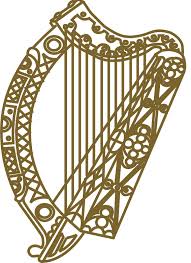
First FRC review makes FRS 102 Investment Property Accounting Tougher
For more on FRS 102 (including the new Section 1A for ‘small’ entities) and the proposed changes in FRED 67 come to our next series of CPD courses in the Talbot Hotel, Stillorgan, County Dublin starting on Monday 27 November 2017. Other courses are also available at Ticket Tailor here.
In its first review since 2013 of the new Irish GAAP, the Financial Reporting Council (FRC) has proposed changes to reporting of investment property, the definition of financial instruments and the treatment of directors’ loans.
It seems hard to believe that FRS 102, the latest version of which is September 2015, was originally published in March 2013. Meanwhile four years later, in March 2017, the FRC published Financial Reporting Exposure Draft 67 (FRED 67), setting out changes to the standard as a result of its first triennial review. FRED 67 contains some significant changes which are expected to become effective from 1 January 2019.
In this first of a two-part blog, we look at one of the main areas most likely to affect our readers.
Investment property
At present, FRS 102 requires that investment property should be measured at fair value through profit or loss, unless obtaining a reliable fair value on an ongoing basis would amount to ‘undue cost or effort’ (interpreted as only rarely applying, where it is practically impossible to locate a valuer), in which case it can be measured at cost. However, this provision has not always been applied correctly in practice.
The exposure draft states that entities may be treating the ‘undue cost or effort’ option as a free accounting policy choice and states clearly that this is not the case. FRED 67 suggests removing the ‘undue cost or effort’ exception entirely, meaning that investment property will always, with one exception, need to be held at fair value. The exception is for property let out to another group member, where the FRED introduces an accounting policy choice between cost/fair value.
Where investment property is partly let out to a group member and partly let out to an external party, the property will need to be split between the two and the externally let portion must be shown at fair value.
The proposals mean that the requirements for investment property accounting will become tougher than they are at present, while there is some welcome relaxation of the requirements in group situations.
Other proposals relate to financial instruments, intangible assets and small entity directors’ loans. We will cover these in another a blog very soon.
It is expected that the updated version of FRS 102 will be published in late 2017 in time for use for accounting periods commencing on/after 1 January 2019, with early adoption expected to be allowed for accounting periods commencing on/after 1 January 2018.
Exposure draft FRED 67
For a copy of the 142-page exposure draft go to this link FRED 67, Draft amendments to FRS 102 Financial Reporting Standard applicable in the UK and Republic of Ireland, Triennial review 2017.
For more on FRS 102 (including the new Section 1A for ‘small’ entities) and the proposed changes in FRED 67 come to our next series of CPD courses in the Talbot Hotel, Stillorgan, County Dublin starting on Monday 27 November 2017. Other courses are also available at Ticket Tailor here.






